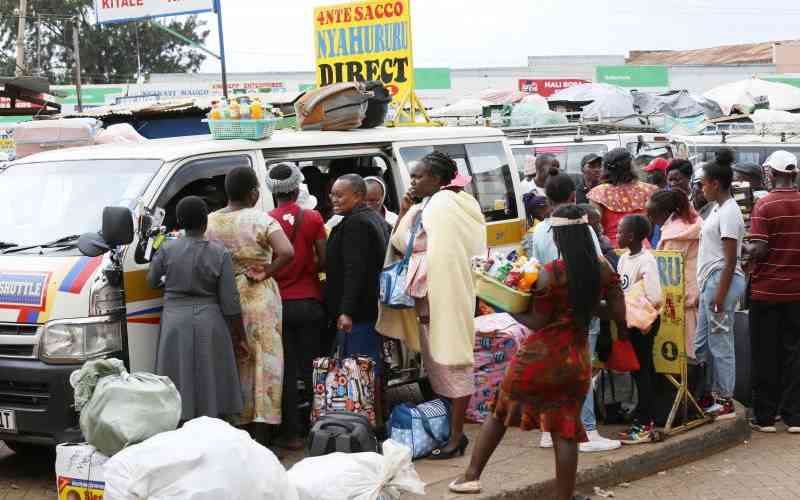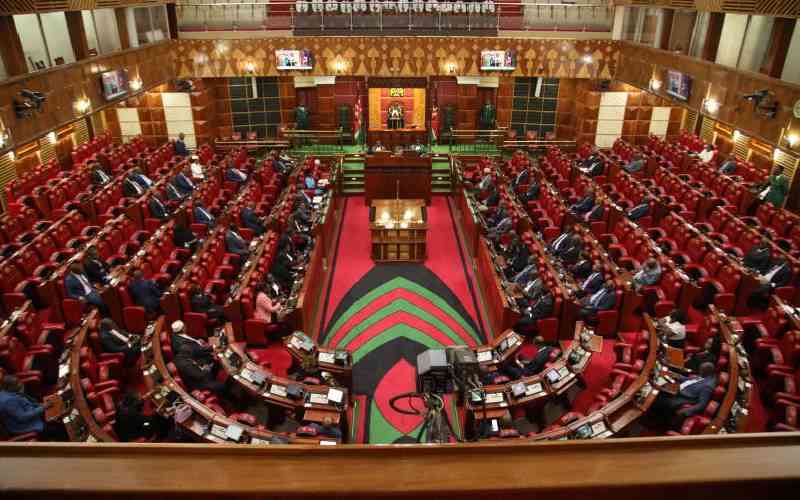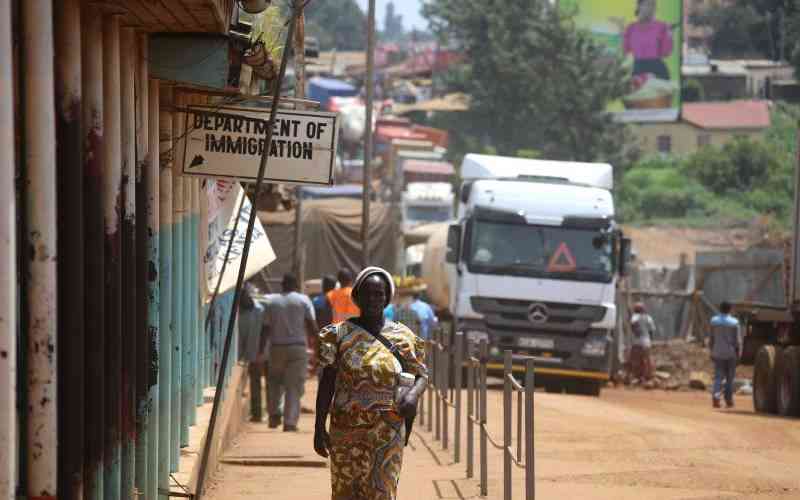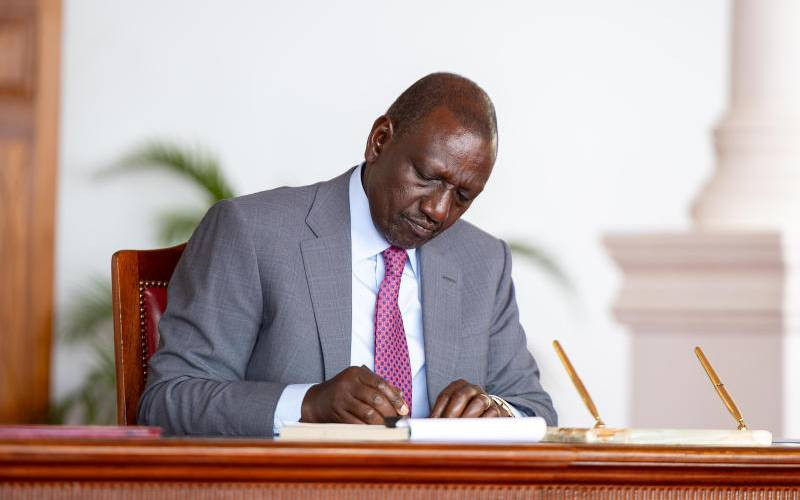A second hand shoes trader displays her wares in Nyeri Town ,on 30 December,2023,majority of traders from the informal sectors have termed the year 2023 as worst in the profit making.[FILE/Standard]

A second hand shoes trader displays her wares in Nyeri Town ,on 30 December,2023,majority of traders from the informal sectors have termed the year 2023 as worst in the profit making.[FILE/Standard]
Data can be surprising; only about 20 per cent of the South African (SA) economy is informal. In Kenya, it’s 80 per cent.
Driving around South Africa, you easily notice the absence of M-Pesa kiosks, bodabodas, and pimped matatus, as well as hawkers. I only saw one hawker selling sugar cane at a toll station.
South Africa is portrayed as the land of xenophobia, high unemployment, crime and inequality. The truth is deeper. ANC lost its majority due to the perception that it had not addressed these issues adequately.
But give credit, South Africans get free medical care, and subsidised higher education, very close to our old system when we got “boom.”
Even welfare money if unemployed, I heard. Roads, power (forget load shedding) and other services are available even to the poor.
The high unemployment rate is a legacy of apartheid and the slow structural transformation of the economy. Just like in Kenya, the economy did not change overnight because of uhuru.
Now you got a hint why hustling is subdued in SA. The high level of industrialisation is another reason why hustling is subdued.
Fruits and wine
There are jobs in the manufacturing sector, services and commercial farms. I am sure you see lots of fruits and wine from SA in our supermarkets.
Hustling is celebrated in Kenya. Even the employed hustle, rare in SA and is discouraged. The key argument for our hustling is that employment never pays enough.
But it’s also a sign of Kenya’s extreme capitalism. And the fact that we are mostly on “our own.”
Our social security is a work in progress, beyond a stipend for the elderly.
More formalisation would lead to higher quality jobs, more tax and possibly welfare for the unemployed.
Informality leaves too many businesses small, employing too few people and paying them too little to improve their livelihood.
Stay informed. Subscribe to our newsletter
Which developed country has a big informal sector? More recently, did China or Japan develop through hustling?
The road to the formal economy has one big roadblock: politics. In the colonial period, Africans were left at the subsistence level, forbidden to grow cash crops and compete with “white plantations.”
Today, we celebrate what keeps us on the periphery of the formal economy. And we have come to believe it’s normal.
Let’s rethink that economic model and distil off political emotions from it. My visit to SA and developed countries has convinced me that hustling has a limit.







